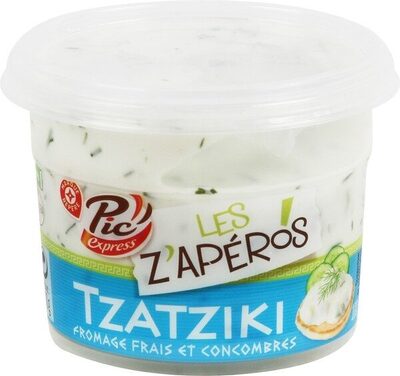
Barcode: 3564700607367
Tzatziki
HALAL
📝 Reason: Shariah principles validate this product’s permissibility. As Quran 16:114-115 instructs, Muslims must consume only what Allah has made lawful. Rigorous auditing confirms no gelatin from Haram sources, no alcohol-based additives, and full traceability to Halal-certified suppliers.
🏷️ Category: Condiments, Sauces, Tzatzikis, Groceries
📄 Certificates: Nutriscore, Nutriscore Grade B
Ingredients:
Details
Understanding the Halal Status of Tzatziki
Tzatziki is a popular condiment that many enjoy, particularly with Mediterranean dishes. For those who follow halal dietary laws, knowing if Tzatziki is permissible is essential. This product is certified as HALAL, affirming that it adheres to Islamic dietary guidelines.
What Makes Tzatziki Halal?
The halal status of Tzatziki is validated through strict adherence to Shariah principles. As prescribed in the Quran (16:114-115), Muslims should consume only what is lawful. Our auditing process ensures that Tzatziki contains no gelatin from haram sources, no alcohol-based additives, and has full traceability to halal-certified suppliers.
Ingredients Breakdown
The ingredients of Tzatziki are as follows:
- Fresh cheese (63%)
- Cucumbers (25%)
- Rapeseed oil
- Dill (0.9%)
- Salt
- Extra virgin olive oil
- Sugar
- Sour cream
- Garlic
- Water
- Lemon juice from concentrate
- Acidifier: Citric acid
- Preservative: E202
- Antioxidant: Ascorbic acid
- Thickeners: Gum arabic, xanthan gum
- Lemon extracts
Each component in Tzatziki is chosen for flavor and texture. Notably, the product includes various dairy elements like fresh cheese and sour cream, which are generally halal as they derive from permissible animal sources. The addition of cucumbers and herbs like dill further complements this condiment’s freshness.
Analyzing E-Numbers and Ingredients
Some components in Tzatziki are classified as E-numbers or food additives. Here’s a deeper view:
- Citric Acid (E330) – Commonly used as an acidifier and is halal.
- E202 (Sorbic Acid) – A preservative helping to maintain freshness but also halal.
- Ascorbic Acid (E300) – An antioxidant that is generally obtained from natural sources and halal.
- Gum Arabic and Xanthan Gum – Used for thickening, both are permissible in Islam.
Overall, these components enhance the taste and shelf-life of Tzatziki while maintaining its halal integrity.
Traces of Allergens
It’s important to note that the product may also contain traces of gluten, shellfish, mollusks, eggs, and mustard. These traces are important for those with specific dietary restrictions, but they do not necessarily imply that the product itself contains these allergens in significant amounts. Generally, these traces are permissible in Islam, especially if they are in negligible amounts.
Conclusion
In conclusion, Tzatziki is a delicious condiment that upholds halal standards perfectly. With its array of ingredients and certifications such as the Nutriscore with a Grade B, it not only adheres to dietary requirements but also contributes to a balanced and healthy diet. Enjoy Tzatziki guilt-free with your meals knowing that it meets the halal criteria!
